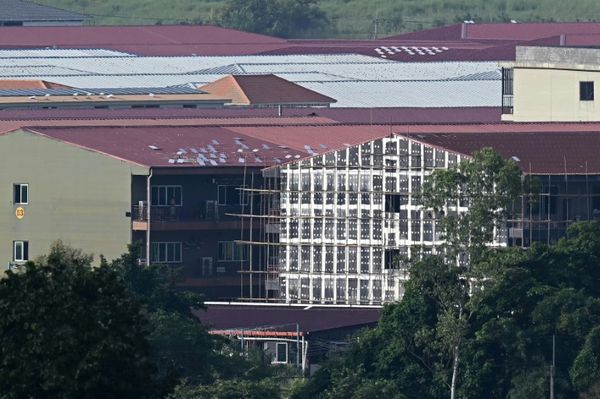
Superannuation is never far from the headlines lately, with the government recently calling for views from the public on what the objective of super should be.
The basic idea behind super is you set aside a portion of your pay over your working life, so you can build up a nest egg to see you through your retirement years.
But what if you’re worried you might not have enough super by the time you retire? Yes, you could top up your super now and watch the nest egg grow through the magic of compound returns – but what are the downsides?
If you’re considering putting more money into your super, and want to know more about how the whole system works, here are the basics.
Read more: Tax-free super for the super rich is a bad deal for the rest of us – and Morrison said it first
What are the rules about putting more money into my super?
First, make sure you know where your superannuation actually is and how much you’ve got so far. This page from the Australian Tax Office explains how to search for any lost super.
The next thing to know is there are limits to how much you can contribute into superannuation.
There are two types of super contributions you can make.
The first category is called “concessional contributions”. These are taxed at 15%, which may be lower than the tax you’d otherwise have to pay on that money. So making these super top-ups can not only grow your nest egg, but save you tax.
The amount of concessional contributions you can make is A$27,500 per annum. That figure includes all the super your employer puts in your super account and any extra contributions you make under a salary sacrifice scheme or where you are claiming an income tax deduction.
The second category, known as “non-concessional contributions”, means money you pay into your super without claiming a tax deduction. This could be, for example, money from savings, an inheritance or a lottery win.
There is a limit of $330,000 over three years (or $110,000 per year), for these contributions.

What are the benefits of topping up my super?
Two words: compound returns.
Compound returns are where you earn returns not only on the original investment you put in, but also on any returns on that investment. As the government’s Moneysmart website puts it, “you get interest on your interest”.
Over the years, this means you could earn a lot more than you would if you didn’t top up your super.
How much more? Well, it depends on the investment return and fees of your fund.
But as an example: thanks to compound returns, putting an extra $100 per month into your super from age 30 could mean you retire with an extra $65,000 in your account (here, I’ve assumed investment returns of 7.5%, accumulation inflation of 4% and salary inflation of 4%).
And the longer it is there, the more it will grow – so starting top-ups early might pay off.
This is particularly important for women, whose super balances may look a bit feeble if they take parental leave or cut their hours while raising a family.
Then there’s the tax benefits of super top-ups. If you would normally pay a net tax rate higher than 15% on investments such as shares, your money will grow more quickly inside superannuation than shares.
You may also be eligible for government co-contributions that add to your balance if you make a non-concessional contribution during the year and your income is less than $57,016.

So what’s the downside? Can I access my superannuation before retirement?
Basically, no. You must meet a “condition of release” before being able to access your superannuation.
The most common is retirement, defined as reaching the age of 65 or leaving work after reaching “preservation age” (which is 60 for anyone born after July, 1964).
There are some special circumstances where you may be able to access your superannuation early.
These are very narrow, and include serious financial hardship or necessary medical treatment that cannot be funded any other way.
Death or terminal illness also qualify for release.
Read more: Should I pay off the mortgage ASAP or top up my superannuation? 4 questions to ask yourself
But what if I need a deposit for a house?
This is a dilemma for non home-owners. After compulsory superannuation guarantee deductions and HECS-HELP, it may be hard to save a deposit.
One of the few circumstances where you access your superannuation early is through the First Home Super Savers Scheme.
If you make voluntary contributions, you may be able to withdraw these contributions for a home deposit.
However, this scheme is very tightly regulated. You can read more about the rules for this scheme here.
So… should I put more money into my super?
It depends. If you do, make sure you understand you will not be able to access that money until retirement.
If you own your home (or intend to rent until retirement) you may want to put more into superannuation while you can afford it, knowing it is contributing to a secure retirement.
But if home ownership is your goal, you should think carefully about choosing between superannuation and saving for a home deposit.
Note: the contribution caps and rates used in this article are for the year ending June 30, 2023.
Helen Hodgson has received funding from the ARC, AHURI and CPA Australia. Helen is the Chair of the Social Policy Committee and a Director of the National Foundation for Australian Women (NFAW) and on the Gender and Career Progression Committee of CPA Australia (WA Division). Helen was a Member of the WA Legislative Council in WA from 1997 to 2001, elected as an Australian Democrat. She is not a current member of any political party. She is a Registered Tax Agent and a member of the SMSF Association, CPA Australia and The Tax Institute.
This article was originally published on The Conversation. Read the original article.







